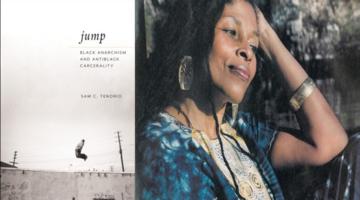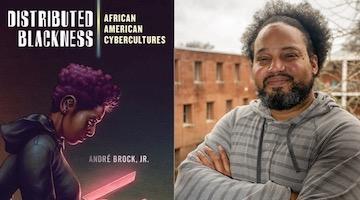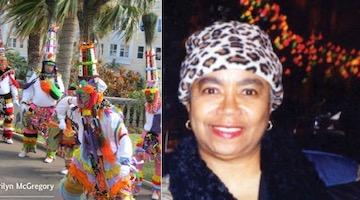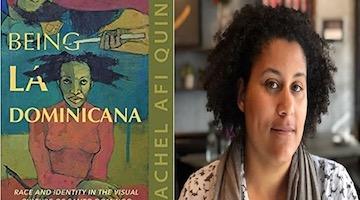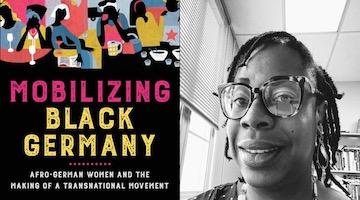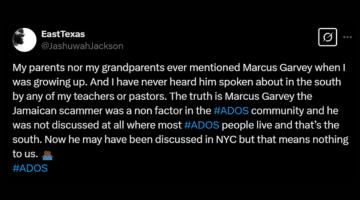BAR Book Forum: Kristen R. Ghodsee’s “Second World, Second Sex”
Socialist ideas about the inextricable links between class, race, and gender predate the concept of intersectionality.
“In 1975, women from Asia, Africa, and Latin America argued that you could not separate ‘women’s issues’ from issues of racism, colonialism, and neo-colonialism.”
In this series, we ask acclaimed authors to answer five questions about their book. This week’s featured author is Kristen R. Ghodsee. Ghodsee is Professor of Russian and East European Studies at the University of Pennsylvania. Her book is Second World, Second Sex: Socialist Women's Activism and Global Solidarity during the Cold War.
Roberto Sirvent: How can your book help BAR readers understand the current political and social climate?
Kristen R. Ghodsee: My book is in many ways an alternative history of 20th century women’s movements that focuses on a non-Western and socialist way of imagining women’s rights. Today, many women feel frustrated with the “lean in” mentality of liberal feminism, which admonishes women to work harder and to convince their partners to work harder in order to overcome sexism, racism, and egregious social inequalities that create an economy rigged in favor of those who start the game with hereditary wealth and privileges. By telling the story of Bulgarian and Zambian women’s activists who pushed a progressive agenda at the United Nations during International Women’s Year (1975) and the subsequent UN Decade for Women (1976-1985), I hope to show that socialist ideas about the inextricable links between class, race, and gender predate the concept of intersectionality.
At the First World Conference on Women held in Mexico City in 1975, for instance, liberal feminists from the United States insisted that a women’s conference should only discuss the status of women. In response, women from Asia, Africa, and Latin America, together with their allies from the state socialist countries of Eastern Europe and Cuba, protested that a women’s conference should allow women the chance to speak about all global concerns, regardless of whether they were specifically “women’s issues.” The latter argued that you could not separate “women’s issues” from issues of racism, colonialism, and neo-colonialism. What was the point, the African women asked, of discussing women’s rights in South Africa when the category of “woman” was so obviously divided by race? What was the point, the East European women queried, of discussing women’s rights in societies divided into classes of oppressors and oppressed? I believe my book speaks to the current political and social climate because these debates have not yet been resolved, and understanding the history of these conflicts between liberal feminists and socialist women’s activists might help us overcome them in the future.
What do you hope activists and community organizers will take away from reading your book?
That conflict produces the conditions for progress. When I was writing this book, I was inspired by Mary Dudziak’s Cold War Civil Rights. In that book, she argues that the Cold War competition between the United States and the Soviet Union proved a useful catalyst for the American Civil Rights movement. The Soviets lost no opportunity on the world stage to point out white American hypocrisy when it came to promoting democracy and human rights abroad while treating African-Americans like second-class citizens at home. The major argument of my book is that socialist alliances of leftist women provided an important foil to Western liberal feminists on the international stage during the Cold War, and that superpower rivalries over which economic system could better emancipate women proved a catalyst for social progress for women across the globe. In essence, male politicians in all countries had to pay attention to women’s issues because they became a point of contention between the superpowers. Western leaders, fearing that women would be “seduced” by socialism’s promise of gender equality, had to make some concessions to domestic women’s movements, which propelled these movements forward. So sometimes having a foreign enemy with a radical agenda creates space for social progress at home.
We know readers will learn a lot from your book, but what do you hope readers will un-learn? In other words, is there a particular ideology you’re hoping to dismantle?
I want to challenge the idea that free markets can create the conditions for true gender equality. While I acknowledge that patriarchal culture persists even in socialist societies, it is competitive labor markets that discriminate against those responsible for the bearing of and caring for children and produce the conditions for women’s continued economic dependence on men. As long as women are trapped in relationships because their societies provide too little of a social safety net to help socialize the work of bringing up the next generation, they will never be the true equals of men. Too many feminists refuse to challenge the structures of capitalism, preferring instead to work within the system to create equality of opportunity in some abstract sense. And while this may work for some elite women, capitalism will always produce a society of winners and losers, and unfortunately women will continue to make up the majority of losers unless we commit to programs for more dramatic social and economic transformation.
Who are the intellectual heroes that inspire your work?
I’m not sure if they are “intellectual heroes,” but there are many socialists and left women’s activists that have inspired my work over the years, among them: the Germans August Bebel, Rosa Luxemburg, and Clara Zetkin, the Russian Alexandra Kollontai, the Finish Hertta Kuusinen, the Trinidadian-born Claudia Jones, and the Nigerian Fumilayo Ransome-Kuti. In terms of specific texts, Friedrich Engels’ The Origin of the Family, Private Property, and the State and August Bebel’s Woman and Socialism are two key books that inform a lot of my thinking about women’s lives under capitalism. I am also enamored of the lives and works of the utopian socialists: Robert Owen, St.-Simon, Charles Fourier, and Flora Tristan. And of course, there is always Karl Marx, whose critical understanding of the flaws of capitalism has helped me imagine different paths forward into the future.
In what way does your book help us imagine new worlds?
I think my book helps us imagine new worlds by showing that the way the world is today is the result of a certain set of historical contingencies that could have gone in a different direction. There was an entirely different conception of women’s rights rooted in a fierce critique of capitalism that in some ways dominated the global discussion of women’s rights during the Cold War. This conception was intentionally belittled and ignored after the collapse of state socialism in Eastern Europe in 1989/1991 because Western (and especially American) women dominated the proceedings of the 4th World Congress on Women in Beijing in 1995 and have subsequently dominated the historiography of the so-called global women’s movement. By reclaiming this narrative, we can hopefully begin to reclaim some of the more radical ideas of the women’s activists of the previous century. Rather than having to reinvent the wheel, we can build upon and expand their work to create a more just, equitable, and sustainable future for all.
Roberto Sirvent is Professor of Political and Social Ethics at Hope International University in Fullerton, CA, and an Affiliate Scholar at Yale University’s Interdisciplinary Center for Bioethics, where he directs the Race, Bioethics, and Public Health Project. He is co-author, with fellow BAR contributor Danny Haiphong, of the book, American Exceptionalism and American Innocence: A People’s History of Fake News—From the Revolutionary War to the War on Terror.
COMMENTS?
Please join the conversation on Black Agenda Report's Facebook page at http://facebook.com/blackagendareport
Or, you can comment by emailing us at [email protected]

